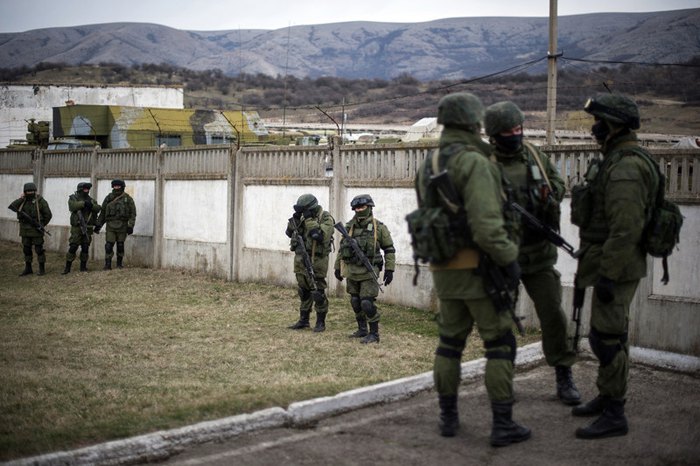Paul Goble, originally on Window on Eurasia
Staunton, April 27 – When an individual, a leader or a country takes something personally rather than viewing it as being in the way of business, that makes the situation far more dangerous because the usual options others have for countering actions taken on the basis hard-headed calculation fall away.
Still worse, such shifts from a business-like approach to one driven by personal feelings mean not only that those who make it are likely to violate their own interests at every step of the way but also that anything anyone else does will be interpreted by them not as part of the ebb and flow of life but as a personal challenge – and behave even worse.
That danger is now very much on view in Vladimir Putin’s approach to Ukraine, Russian commentator Stanislav Belkovsky says, because for him, Ukraine is a place where he can take “personal revenge” for the failures he has suffered there and elsewhere over the past decade (gordonua.com/news/politics/Belkovskiy-Dlya-Putina-Ukraina-territoriya-lichnoy-mesti-strana-gde-on-terpel-sploshnye-neudachi-19907.html).
Speaking at the conference organized by Mikhail Khodorkovsky in Kyiv about the future of Ukrainian-Russian relations, Belkovsky argued that one can only understand what Moscow is doing by paying close attention to the evolution of the psychology of the Kremlin leader and the political system he has created.
According to the Russian commentator, Putin has created a situation in which “there are no autonomous and competent political institutions. Today, all power belongs to one man, and as is well known, power corrupts and absolute power corrupts absolutely, especially if the individual involved is not completely firm of mind.”
Putin has never been someone guided by “super-valued ideas,” he continues, and therefore there is little reason to believe that he “ever had plans for the restoration of the Soviet Union” as such. Instead, he has been for most of his presidency simply “the guarantor of the interests of the elites” both at home and abroad.
“But over the course of this time, much as changed,” including both Putin and Russia.
Putin has been “a quite successful president who in his own understanding has gone from victory to victory,” Belkovsky says, often achieving what others had thought improbable or even impossible, including most recently the Russian triumph at the Sochi Olympics. That has led both his friends and his enemies to conclude that Russia has to rely on him because there are “no alternatives” to his rule. As a result, Putin has come to view himself as genuinely great and irreplaceable and to act less and less as the defender of elites and more and more as someone who can act on the basis of his own feelings.
And those feelings have changed. Putin came to power as a moderate Westernizer, and in his view, he has “fulfilled practically all the obligations to the West which he had assumed” only to have the West take advantage of Russia’s relative weakness and act without taking his views into full account.
Nowhere have those feelings been more manifest and more exacerbated than in Ukraine, Belkovsky says. In 2004, he was certain that the Orange Revolution would fail. In 2010, he wanted Yuliya Tymoshenko and not Viktor Yanukovych to come to power. And in 2014, the Maidan triumphed, in Putin’s view because of the actions of the West.
Putin thus resolved to take revenge on the West and to do so in Ukraine where he had suffered defeats and humiliations “even if this will threaten Russia with complete isolation. And he is taking revenge against his on elite which he had long protected and demanding that it be “at a minimum” loyal even if his actions cost it income and wealth.
In some respects, Belkovsky says, Putin is “experiencing a second youth:” He is returning to the foreign policy issues that he focused on when he was beginning his career and ignoring “the economic collapse of Russia itself because that is on the periphery of his consciousness.”
This psychological state means, the Russian analyst continues, that “Putin cannot and does not want to stop.” Crimea was not enough and neither would be the Donbas. “To distract the attention of the Russian people from economic collapse and to force it to accept the growing catastrophe” will require “a permanent success of foreign policy victories.”
“On the one hand,” Belkovsky says, “Ukraine for Putin is not a final goal.” But “on the other, Ukraine is a territory of personal revenge” because in his view so many of his failures “have been connected mainly with this country.”





